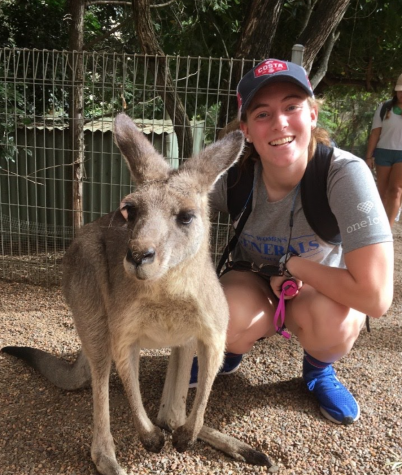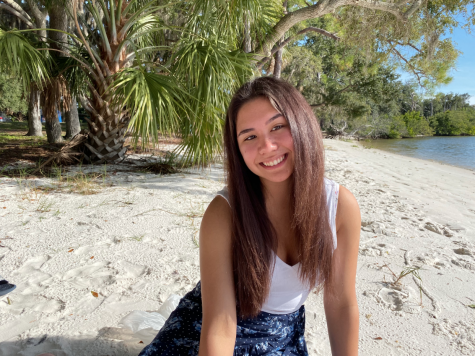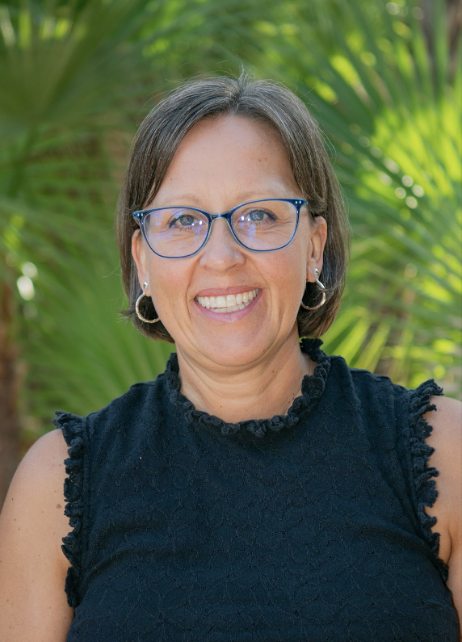Leeann Passaro: Future of Teaching
Passaro Discusses Her English Teaching Fellowship and College Experiences
October 17, 2020
As the second Upper Division Teaching Fellow, Leeann Passaro joins Danielle Marcantuono-Polstra in lesson planning for and instructing AP English Literature and Composition. Passaro is excited to start coaching lacrosse and soccer and to get to know the Berkeley community through its students. She’s a 2020 graduate from Washington & Lee University and is passionate about student athlete mental health, film studies and traveling as well as her trajectory to teach English. The Fanfare sat down with Passaro to inquire about her experiences, aspirations and advice.
Q: How did you first become interested in English and teaching?
A: I went to The Lawrenceville School, which was a private boarding school in New Jersey.
When I entered my sophomore year, I was enamored by the English department and the idea that you could sit around and talk about books for a whole hour. I didn’t want it to ever end. I loved English at Lawrenceville and it always came naturally to me, but I was pretty dead set on being a doctor. I went to Washington & Lee University in Virginia, which is a small liberal arts school and I was excited for that opportunity because I wanted to pursue different passions. I wasn’t sure what exactly I wanted to do so I didn’t want to pigeonhole myself into one thing. I started off with pre-med, and I actually completed most of the pre-med requirements. I still am considering doing physical therapy down the line.
I love teaching. I love working with kids. I started off doing summer camps at Lawrenceville through working with underprivileged youth. Later on, I moved into a classroom summer camp setting. In the summer I was 19, I worked at Lawrenceville in their Summer Scholars Program, and had the opportunity to have control of my own classroom for the first time. It was a transformational experience to the sink or swim kind of teaching. It was low stakes because it’s summer academic camp, and I was teaching SSAT prep, so I was teaching out of the book a little bit. I still had to develop a curriculum and adapt day to day. Then I’ve also always been involved with coaching youth sports. By sophomore fall [it] is time to declare your major and I decided to declare the English major, but continue on the pre-med track.
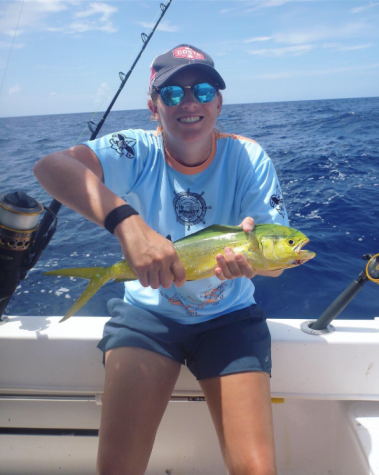
Q: What do you think were the benefits of a small liberal arts education?
A: The beauty of a liberal arts school is that you have a lot of choice. Your electives run the gamut, so you can really choose how much of any subject you want. Also, I had a really interesting English department where they had distribution credits across genres and time periods. If I would have gone to a different school, I probably would have chosen American literature right away, since some schools do concentrations. I’m so grateful looking back for Washington & Lee’s English program as it forced me to take classes across all different focuses. Classes I initially dreaded became classes I loved. You get to experience a wide breadth of topics and genres, which gives me the foundation to be able to teach it for my profession.
As I grew within the English program, I found beauty in poetry. I think professors open up different realms to you and I found one professor that I loved and ended up taking her over and over again. I fell in love with American poetry and my capstone was research-based poetry where I got to explore my family origins from Greece. My research was historical and my research was interviewing family members. I listened to old family tapes, which was really beautiful and interesting to do during COVID. It was about thirty pages of poetry for my capstone.
Q: What were some activities you pursued outside of classroom involvements?
A: I chose a literary internship that was pretty unique, where I worked for a national publishing literary magazine run off our campus. We cap it off at eight hundred submissions and I read one hundred fifty submissions. I got to make decisions on which pieces would reach the editors. It was a great experience to expose me to a wide array of genres and to learn how to evaluate what the magazine was looking for and why. This was an awesome experience that opened my eyes to the publishing world and led me into Hidden Opponent.
I’m working for a nonprofit called Hidden Opponent, which is a nonprofit for student athlete mental health founded by Victoria Garrick. She’s a year older than me and she was a volleyball player at USC and her TED talk went viral in 2017. I’m the editor in chief of Hidden Opponent and I manage the social media of almost twenty-thousand followers. I get to edit stories of student athletes, sharing their mental health stories and their hopes of more inclusive athletic communities. Also, I’ve been developing a curriculum for campus captains program where student athletes can be ambassadors for student athlete mental health.
I love film and making films… One documentary I made was on reentering society after incarceration in Rockbridge County, and one was on Native American boarding schools of the late 1800s, specifically the Carlisle Indian boarding school. I actually got to go there and film on site for this project and that was a free choice project instead of writing an essay. This opportunity is also something I love about college, as I got more freedom to explore different topics and different forms of writing or analytical essays. I’ve made a bunch of films, whether it’s for fun or for academia.
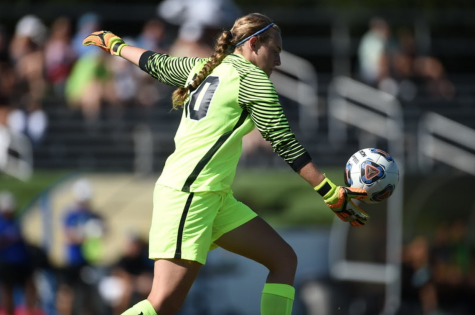
Q: How did you end up at Berkeley?
A:I knew I wanted to teach high school. I’ve worked extensively in middle school classrooms but I wanted to hit a higher level academically. With the pandemic, things were chaotic and an opportunity I had prior fell through. This made me wonder what my next step would be, so I was looking on job boards for private institutions that were hiring and Berkeley popped up. I was a little skeptical of Florida but when I came to Berkeley, Mr. Jordan took the time to walk me and my mom around campus and show me some things before the first day. I loved it. I’ve been super impressed with everything, and it’s amazing I found Berkeley by accident but Mr. Jordan’s speedy response and initiative was such a great beginning sign.
This is the second year of the teaching fellowship. The idea is to ease you into teaching by giving you small responsibilities in the beginning and then to start slowly taking over a couple sessions. I really liked the idea of getting a ton of mentorship. I loved learning in faculty orientation how much mentorship you get here, even if you’ve been teaching for 30 years and this is such a collaborative community. I love being able to learn from people that have been doing this longer than I have. Also, I’m also really excited to hopefully coach sports if they happen. The plan was to do soccer and lacrosse. This was something that I was really looking forward to, as with moving into teaching in a private school setting I could also see kids after school and in a variety of different settings.
Q: What college advice would you give to highschool seniors?
A: College is an amazing time and I think it’s easy to take that time for granted. It is cliche but it does go by so fast. I think I got caught up in doing just a few things like soccer; I played soccer for three years, which became my life for most of my college experience. In my senior year, I didn’t play soccer, so I jumped into so many new opportunities, such as a mental health society. I got the opportunity to write more and pursue internships. It’s a great time to get your hands on a lot of different things and figure out what you want to do. It’s also okay not to know what you want to do right away. I think a lot of kids go with strong preconceived notions of who they’re going to be, but let yourself be immersed in the process and explore different activities.
I would highly recommend studying abroad. I know it’s cliche to say studying abroad changed me, but to be in a new country and immerse yourself in a culture is a huge step. I went to Australia which is not a different language or a different system but I learned so much. It was amazing; I really got to dive into science, as it was the best Marine Science school in the world right on the Barrier Reef, so it’s quite a cool resource. I was able to fulfill my science interests and later coming back to Washington & Lee, I took all English classes. I made my best friends, both Americans and Australians, and picked up rugby. I got to see different parts of the world, different animals and learn about their political system, how they were founded and their daily lives. It’s the best time to travel at a young age because you are experiencing so many new things early on.
Academically, it was a bit challenging. Socially, it was definitely challenging. For me at this smaller school, it was a pretty homogenous community. I’m not gonna say college was easy for me, for sure, but I learned even in the toughest parts. I would do college all over again, including all the hard stuff in a heartbeat.
